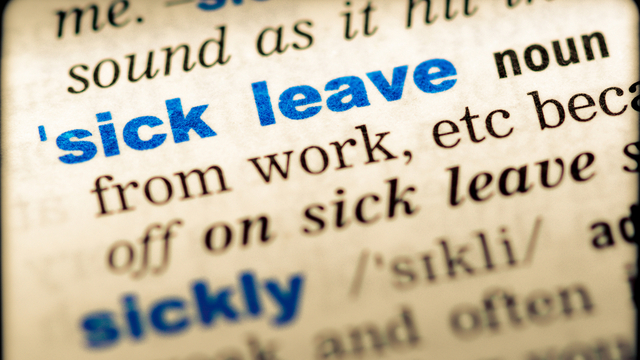Employees summoned to military service receive certain job protections under a federal law known as the Uniformed Services Employment and Reemployment Rights Act (USERRA). The law requires employers to provide employees on military leave any seniority-based benefit they would have accrued but for the service. A recent case from the U.S. 7th Circuit Court of Appeals (which covers Illinois) unpacks what is and is not a “seniority-based” benefit.
Prepare for Takeoff
Michael Moss worked as a pilot for United Airlines. He also held a commission in the armed services’ reserve component and was called to active duty while working for the airline.
United’s sick leave policy didn’t allow employees summoned for military duty to accrue paid sick time while they were on leave. Moss filed a lawsuit in Illinois federal court claiming the airline violated USERRA by denying sick-time accrual to pilots on military leave. The Act states:
“A person who is reemployed . . . is entitled to the seniority and other rights and benefits determined by seniority that the person had on the date of the commencement of service in the uniformed services plus the additional seniority and rights and benefits that such person would have attained if the person had remained continuously employed.”
Courts have described the adjustment as the “seniority escalator.” That is, returning servicemembers step back onto the seniority escalator where they would have been but for the military service. In addition, they receive any seniority-based benefits to which they would have been entitled if they had remained continuously employed.
Holding Pattern
Moss argued the accrual of paid sick leave was a seniority-based benefit that should have continued to build while he was on leave. United countered paid sick leave wasn’t seniority-based because (1) all employees earn the same amount of sick time and (2) there’s no vesting threshold (i.e., employees start to earn it on their first day of employment). The district court agreed and entered judgment without a trial in the employer’s favor. Moss appealed to the 7th Circuit.
On appeal, the 7th Circuit explained a benefit is seniority-based if the right (1) would have accrued, with reasonable certainty, had the veteran been continuously employed by the private employer and (2) is in the nature of a reward for length of service. Although the test seems straightforward, its application in a practical setting is “not always easy,” the court noted.
Turbulence
To determine whether United violated USERRA, the 7th Circuit first had to decide whether Moss would have continued to accrue paid sick leave had he been continuously employed by the airline and not gone on leave. On this preliminary point, the appellate court agreed the pilot would have continued to accrue sick time if he had been continuously employed.
Next, the 7th Circuit asked whether the paid sick leave benefit was a reward for length of service. As the court explained, a benefit is seniority-based if its real nature is a reward for length of service rather than compensation for services already rendered.
So, in Moss’ case, was United’s paid sick leave backward-looking compensation for work performed or a future-oriented incentive to get him (and other pilots) to stay at the airline? Only the latter is seniority-based.
Not-So-Friendly Skies
Moss viewed the sick time as a future-oriented benefit because it provides economic security in times of illness, and the sick-time accrual doesn’t expire annually. The 7th Circuit, however, noted the airline’s sick-time accrual policy didn’t have a vesting period. Instead, all pilots start to earn paid sick leave on their first day of work.
The lack of a vesting period indicated the benefit isn’t tied to seniority but is deferred compensation designed to cover periods when the employee is unable to come to work because of an illness. In addition, the fact that under the policy employees don’t earn more sick time the longer they have been with United also suggested the sick time benefit isn’t a perquisite of seniority.
For the above reasons, the 7th Circuit found United’s paid sick leave benefit was designed to allow the working employee a respite and encourage sick employees to stay away from the workplace. The benefit wasn’t designed as an incentive to stay at the airline.
Finally, the 7th Circuit noted United’s sick leave policy contained a work requirement. Pilots earned five hours of sick leave for a defined period of active employment, which also indicated the benefit was compensation for services rendered rather than a reward for long service.
On balance, the features of United’s sick leave policy indicated the benefit wasn’t seniority-based. Therefore, the court affirmed judgment in the airline’s favor. Moss v. United Airlines, Inc., No. 20-3246 (7th Cir., December 14, 2021).
Safe Landing
The test for determining whether a benefit is seniority-based seems straightforward, but its application isn’t always easy. As United’s case illustrates, whether a benefit is seniority-based will depend on the particular facts at hand, including the details of how the benefit policy is structured. Employers wrestling with USERRA questions may want to consult with counsel because the questions can be tricky.
When it comes to USERRA, Godspeed.
Kelly Smith-Haley is an attorney with Fox, Swibel, Levin & Carroll, LLP, in Chicago, Illinois. You can reach her at ksmithhaley@foxswibel.com.

